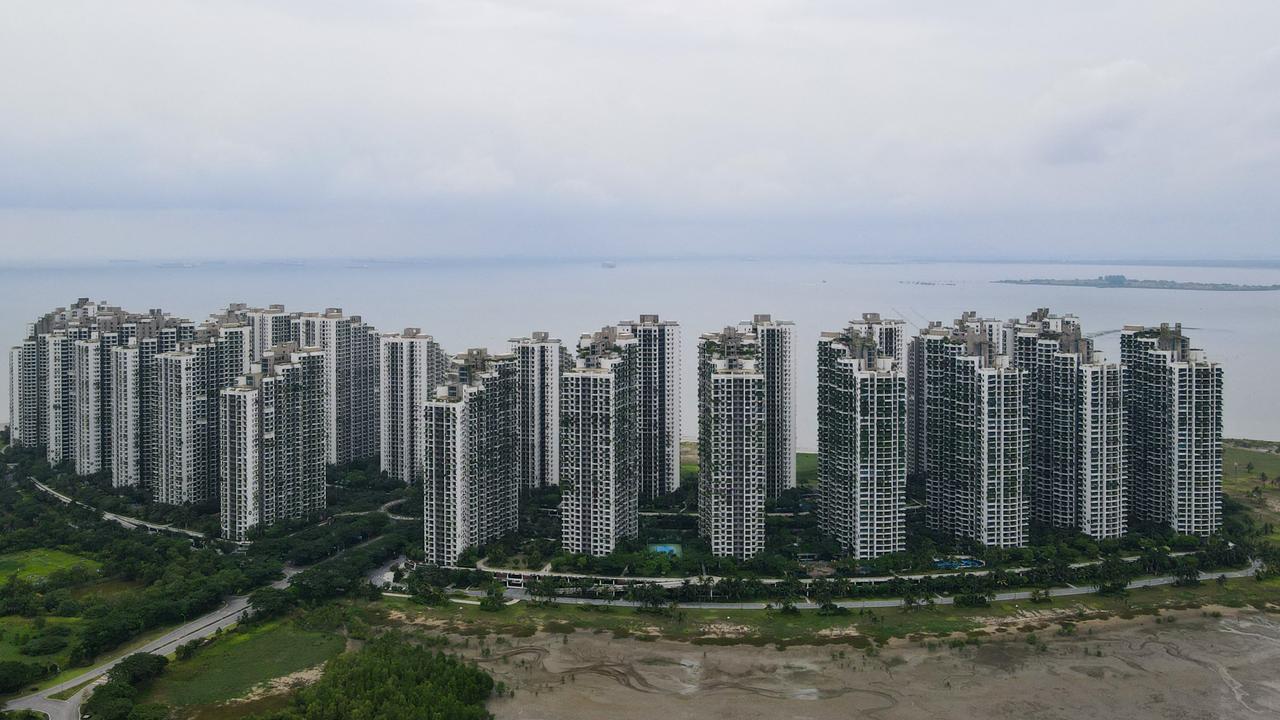[ad_1] Residents of this Asian development have an odd issue with their neighbours: there aren’t any. In Forest City, a Chinese-built complex in Mal
[ad_1]
Residents of this Asian development have an odd issue with their neighbours: there aren’t any.
In Forest City, a Chinese-built complex in Malaysia’s Johor state, residents are struggling with the lack of people and space.
“I managed to escape this place,” IT engineer Nazmi Hanafiah recently told the BBC of his six months renting a one-bedroom unit in one of the $100 billion mega-project’s towers.
“It’s lonely around here — it’s just you and your thoughts.”
Developer Country Garden’s eco-friendly “dream paradise” Forest City, with a waterpark, golf course, eateries and plans for one million residents, was unveiled in 2016.
After eight years, the hoped-for utopia failed to materialise, leaving only a few residents and a desolate complex of buildings, which Mr Nazmi described as a “ghost town.”
According to the BBC, Country Garden now faces debts of nearly $200 billion. Only 15 per cent of the development has been constructed, and only 1 per cent of the apartments are occupied.
Still, the developer told the outlet it is “optimistic” Forest City will one day be completed.
“I had high expectations for this place, but it was such a bad experience. “There is nothing to do here,” said Mr Nazmi of his time in Forest City before abandoning his deposit to no longer live there.
Even going back for a visit gives him “goosebumps.”
In a way, Mr Nazmi was lucky. As a renter, he had less to lose when he fled after realising his new home wasn’t all it seemed, but was instead a victim of China’s overzealous earlier-2000s real estate boom.
“I feel sorry for people who actually invested and bought a place here,” said Joanne Kaur, a Forest City resident who, along with her husband, are currently the only people living on their floor.
“It should be the project that was promised to the people, but that’s not what it is.”
‘Sick projects’
The problem extends beyond Forest City – across Malaysia and even into its capital, Kuala Lumpur.
The issue even has a name by the Government – “sick projects” – and a new dedicated task force.
Sick or abandoned housing projects have been a recurrent issue for the nation’s economy since the 1980s.
Local media reports that the issue slows real estate investments and overall economic growth.
Speaking to the Malaysian Publication the New Strait Times, leading lawyer Datuk Shamesh Jeevaretnam said it was becoming a “critical” national threat.
“There can be no debate that the sick housing issue is a critical national-level threat that must be addressed seriously,” he said.
A “sick project” is essentially a housing development that a developer has not completed within the time frame specified in the Sale and Purchase Agreement (SPA), which is, more often than not, eventually abandoned.
The Local Housing and Development (KPKT) Ministry, which is responsible for urban wellbeing, housing, local government and town planning, among other services, established a special task force to deal with abandoned or sick housing projects in December 2022.
The latest published count marked 55 delayed projects and 497 sick projects.
An update from Deputy Minister of Local Government Development Akmal Nasrullah Mohd Nasir confirmed the task force had revived 351 sick or abandoned housing projects, totalling an astonishing 43,738 housing units.
The Malaysian government believes stakeholders are tied up in each affected unit.
Mr Nasir previously contextualised the problem, citing Kelantan, a northeast state where half of its 86 current housing projects are struggling with completion, with 40 labelled sick.
“It means that when we buy a house in Kelantan, there is a 50-50 chance of a problematic house. This is very concerning,” he explained earlier this year.
Malaysian real estate specialists have called for a halt on development approvals for those responsible for sick projects.
Samuel Tan, executive director of KGV International Property Consultants, went as far as to call on banks to reject loans for such developers.
“The onus is on all stakeholders to ensure that no projects are sick or abandoned, as this will reflect poorly on an industry that affects the rakyat (ordinary citizens) and 140 other downstream activities,” he said.
[ad_2]
Source link



COMMENTS